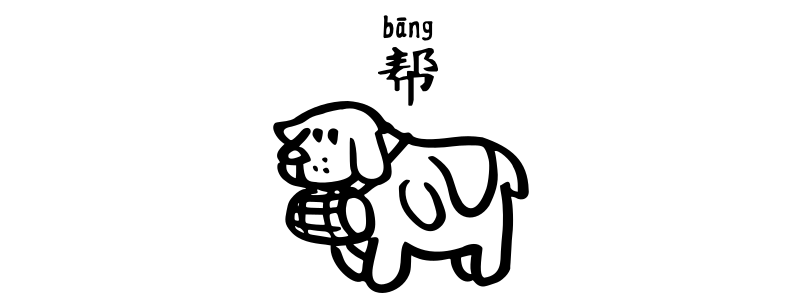In Chinese grammar, the word 帮 bāng typically functions as a verb meaning “to help” or “to assist.” It is used to indicate the action of aiding someone or providing assistance in a particular situation.
Structure
(S) + bāng + people + V + (O)
他幫我寫作業他帮我写作业
He helps me with my homework.
你能幫我嗎?你能帮我吗?
Can you help me?
請幫我跟老師說请帮我跟老师说
Please tell the teacher for me.
我幫你吧我帮你吧
I’ll help you.
你幫不幫我練習中文?你帮不帮我练习中文?
Will you help me practice Chinese?
In Chinese, there are a few words that, when you want to negate them, require placing the negation marker (不 bù or 没 méi) before the preposition, rather than before the verb. 帮 bāng is one of these words.
他沒幫我他没帮我
He didn’t help me.
我沒幫他買飯我没帮他买饭
I didn’t buy food for him.
我不想幫你我不想帮你
I don’t want to help you.
你為什麼不幫我加糖?你为什么不帮我加糖?
Why don’t you add sugar for me?
Real Life Conversation
In casual or informal conversations, especially when seeking help from friends or acquaintances, it’s common in Mandarin Chinese to add 一下 yíxià after a verb or to repeat the word 帮 bāng to soften the tone and make the request sound more friendly or polite.
你能幫我看一下這個嗎?你能帮我看一下这个吗?
Could you help me take a look at this?
能不能幫幫我,告訴我餐廳在哪?能不能帮帮我,告诉我餐厅在哪?
Could you help me and tell me where the restaurant is?
這太重了,你能幫我一下嗎?这太重了,你能帮我一下吗?
This is too heavy, could you help me for a bit?


